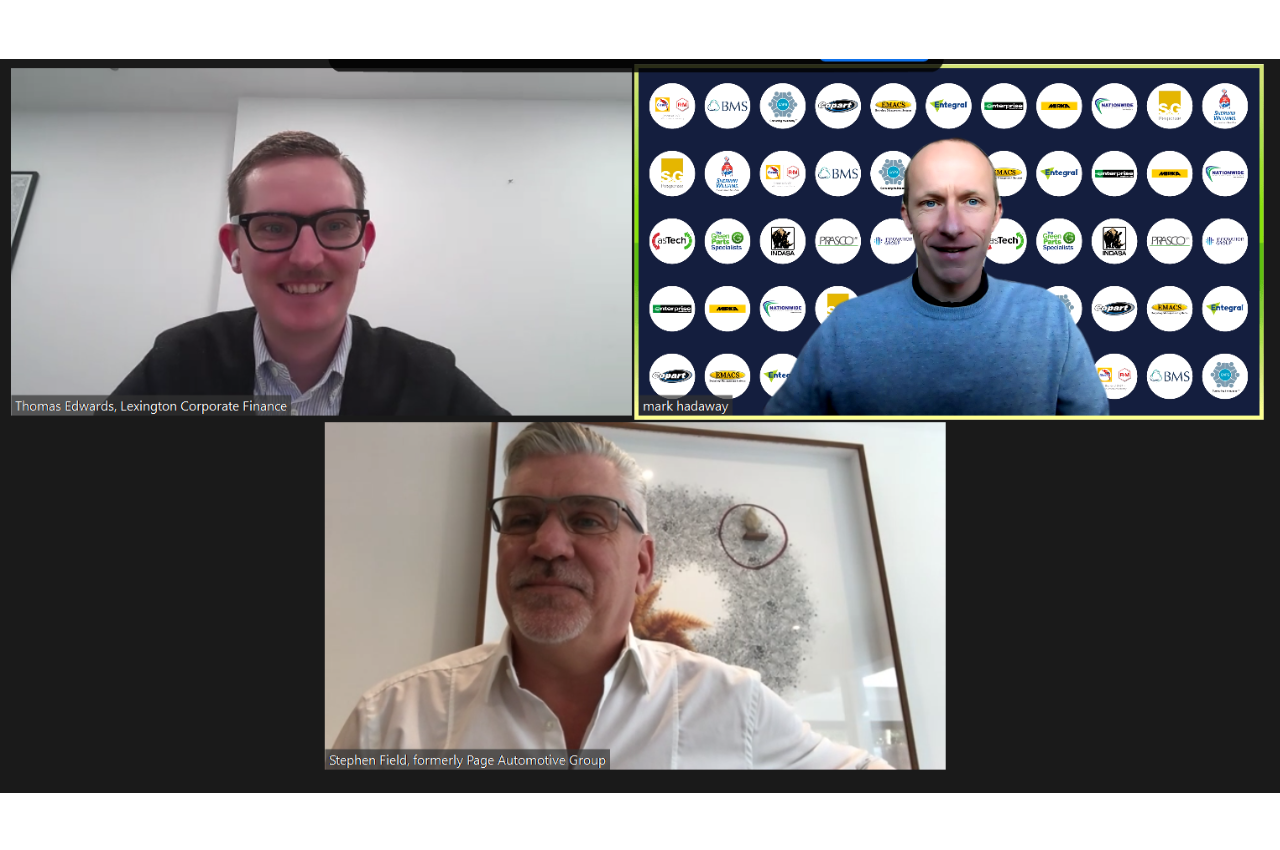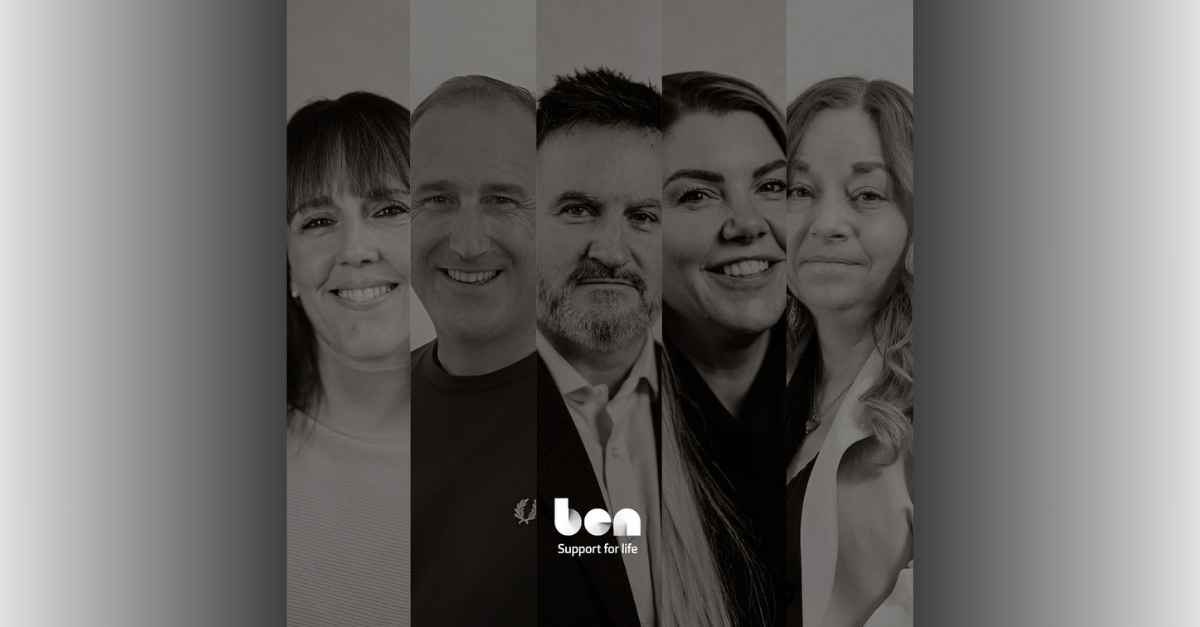With the pandemic showing few signs of ending any time soon, bodyshop managers must become businessmen before repairers to ensure they make it out the other end.
That the was message delivered by Stephen Field, former CEO, Page Automotive Group and Thomas Edwards, director, Lexington Corporate Finance, who were talking during episode three, series three of ARC360’s webinars.
Titled ‘Financially speaking’, the webinar highlighted the various growth options available to companies right now, but also emphasised the fundamental need for owners to have a firm grasp of the financials underpinning their business before they even contemplate the next step.
Failure to evolve
Stephen said, ‘The industry failed to evolve in the last 20 years. It’s become subservient to contracts from accident managers or insurers. We just wait for the work to come to us. That’s borne from laziness and it has to change, and what we’re going through now can actually be a good thing if we use it as a watershed moment, a moment to become smarter about how we work and how we get work into the business.’
The obvious question is how to identify and implement those changes in the middle of global pandemic, when resources are strained and many managers are working at full speed simply managing daily operations.
Thomas said, ‘For owner-managed businesses, the challenge is being strategic while still remaining on top of the day-to-day, because if you drop the ball there then there is no point looking 12-24 months ahead. But that is where your team comes in. You need to delegate and then trust your workforce.’
Surviving
For those who haven’t yet evolved, it’s likely there are still some difficult decisions to make.
Many are still in what Stephen describes as ‘surviving’ mode, and he says there are some practical steps they can take right now to make their lives a lot easier. Firstly, following the age-old adage that cash is king, he suggests getting every bit of cost out of the business that is possible: that means furloughing staff where possible; fully utilising those working from home by asking them to fulfil different roles, such as communicating with customers; saving energy costs by turning off lights, computers and vending machines at night; renegotiating supplier relationships where possible; and ensuring that all the money owed to you is paid.
He said, ‘If you’re not getting the money from debtors then pick up the phone and negotiate. Get the bulk of it rather than nothing, because you need to keep cash in the bank at all costs.’
The good news is that most appear to appreciate this already, with a live ARC360 poll finding that 58% of respondents said reducing overheads was a key focus, with 36% also citing reducing variable costs as key.
This has always been fundamental, but cash is even more importnat now as businesses consider their options. It’s fair to say that few can afford to remain as they were before the global health crisis struck, and the options going forward include diversifying services, joining a group, or selling up.
Consolidation
Consolidation has been trending in the industry for a number of years, and many predict Covid-19 to speed up the process.
But Stephen warned that finding the right partner is not as easy as it seems, with big not always being better, as the fate of Nationwide Accident Repair Centre highlighted. He explained that as the incident repair sector is a ‘capped revenue industry’, one which works with roughly the same rates and terms across the board, economies of scale can be nullified in all areas of the business apart from procurement.
For that reason, he believes a national group is not always better off than a large, well-run independent.
He said, ‘They have to buy a lot of businesses to be strong and provide the right level of coverage, and if they don’t get the margins right then it doesn’t matter how big you are. The numbers just get bigger, the drain on cash just gets bigger.’
He suggests that regional groups might be a logical solution, as they can establish critical mass while still maintaining the benefits of being ‘local’ and harbouring good relationships.
Diversification
The arguments in favour of diversification have been well made, but the drain the last 12 months has put on resources has meant any investment needs to be carefully considered.
Thomas said, ‘It’s all about cash now because if you’re looking to diversify, can you manage that little bit of investment now that will pay big dividends when the uptick comes? You also need to make sure you still have the working capital to take advantage when the sector recovers.
‘But I’ve actually been really impressed with those businesses who in the last six months have found ways to work differently or go after different customers, who have thought of ways to diversify.’
Exit
For some though, the future of their business rests in other hands. Thomas explained that many SME owners have brought forward plans to sell-up, and are quite prepared to absorb a 25-30% fall in sale price to do so.
‘Whatever plans people had 12 months ago, they’ve been ripped up. A lot of people want to accelerate their exit plans and if you’re thinking your business is too small to be attractive to investors or private equity company’s, that’s not the case. Plenty of people are looking to invest in well-managed companies.’
He said that ultimately, investors will back a good management team that has developed a robust and deliverable business plan, and one which can show where future growth is coming from.
Financials
Again though, whatever the next step is, it all comes down to the financials and having an iron grasp on the numbers is non-negotiable. Not traditionally a strong area for owner-managers across all industries, not just the incident repair sector, it doesn’t have to be as daunting as it is sometimes made out.
In fact, there really is just one key number to know – the break-even figure, how much do you need to make to survive. Costs and margins will all feed into that, but the break-even figure is ultimately what determines a businesses’ success or failure.
But owners in this sector have not been caught out, with 65% of respondents to another online poll saying they have changed the way they manage their finances in the past year, with a further 27% insisting financial awareness was already a strong point before the pandemic.
That is perhaps one reason why the sector has not been as decimated by low volumes as many feared – despite the grim statistics: as lockdown 3:0 lingers on, more than half of respondents to another poll (53%) said they were operating on 40-60% of normal work levels, with 61% reporting a slight (38%) or significant (23%) reduction in claims volumes in the last fortnight.
ARC360, in association with I Love Claims, is supported by corporate partners BASF, BMS, Copart, EMACS, Entegral, Enterprise Rent-a-Car, Mirka, Nationwide Vehicle Recovery Assistance, S&G Response, Sherwin Williams and CAPS; partners asTech, The Green Parts Specialists, Indasa, Innovation Group and Prasco UK; and strategic partners AutoRaise; NBRA; RepairTalks; and TrendTracker.

















